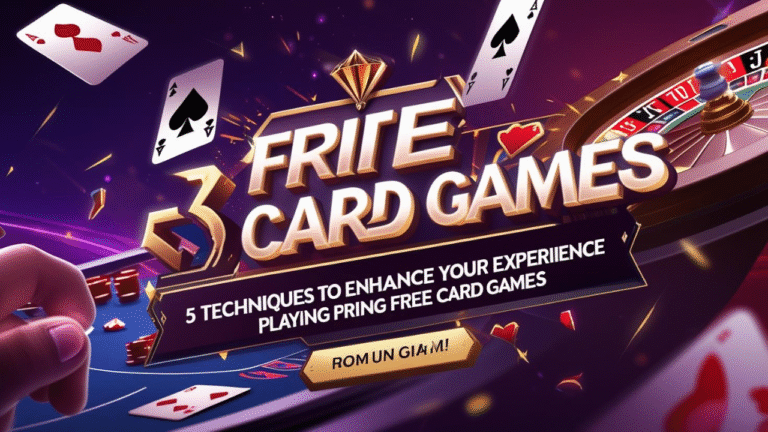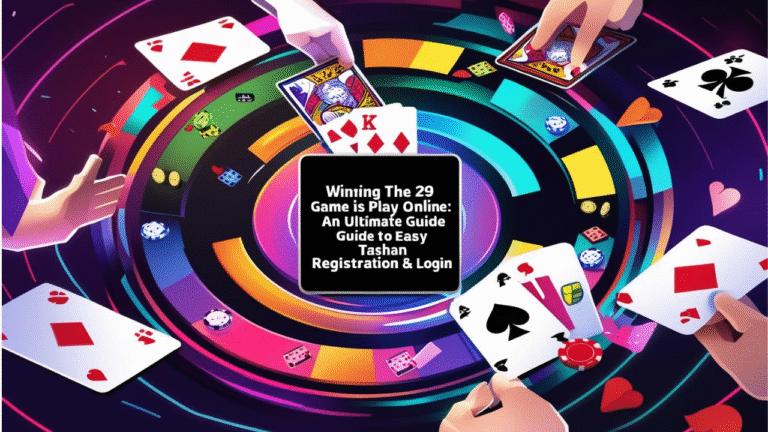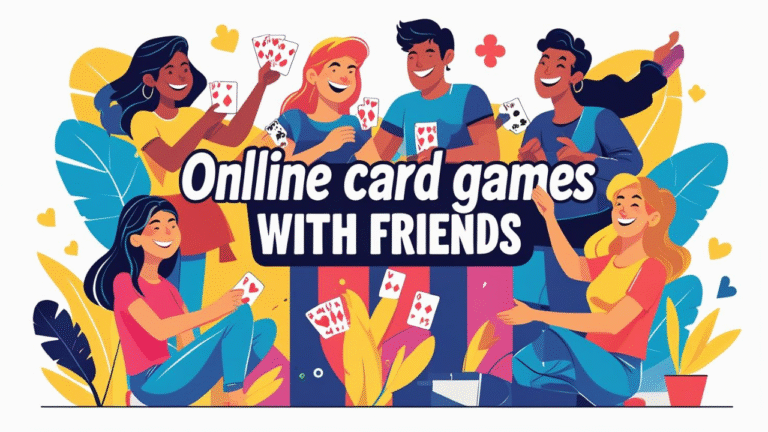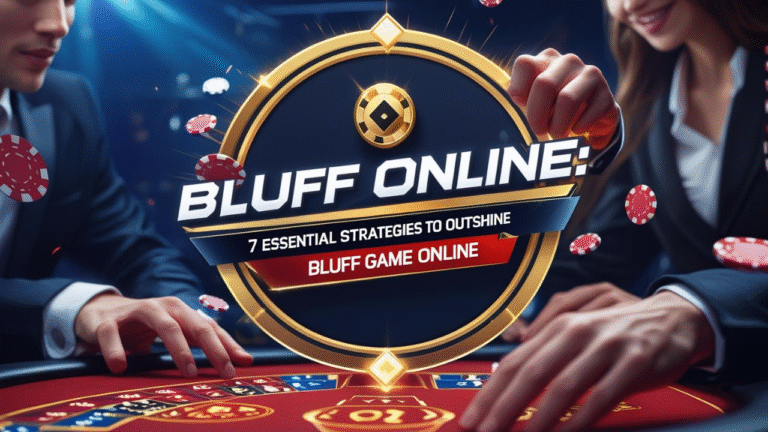Explore the world of deck of card games – timeless classics and modern twists. Find out your next obsession & master every shuffle, deal, and your wins!
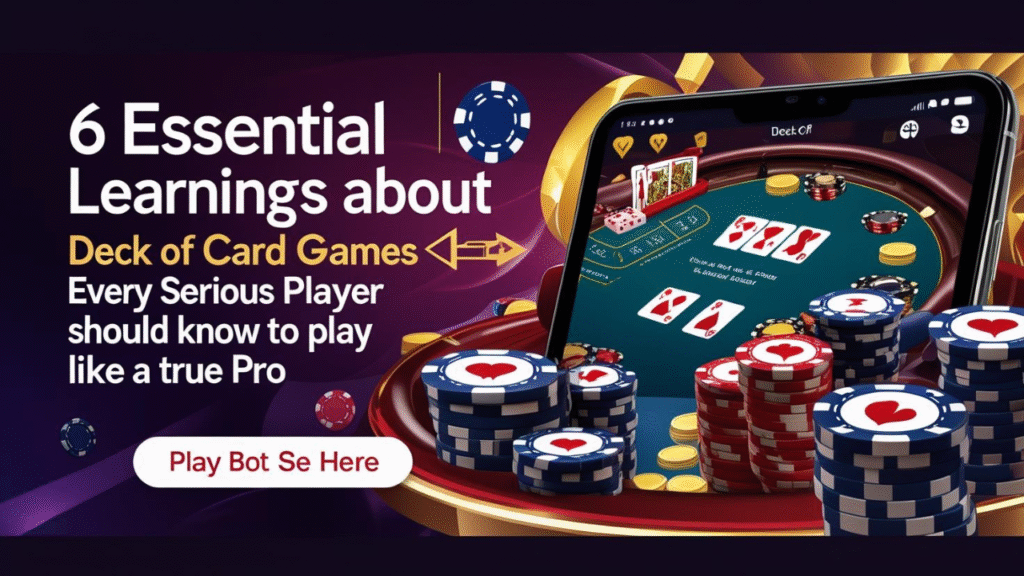
For millennia, social connection and entertainment have revolved mostly around deck of cards games. For decades and civilisations, their simplicity, adaptability, and strategic depth have been popular past times. Knowing the rules and intricacies of deck of card games will improve your gameplay and enjoyment independent of your degree of strategising or casual playing. Every player should be aware of six timeless game insights that this article spells out.
Appreciating the Basic Ideas of Deck of Card Games
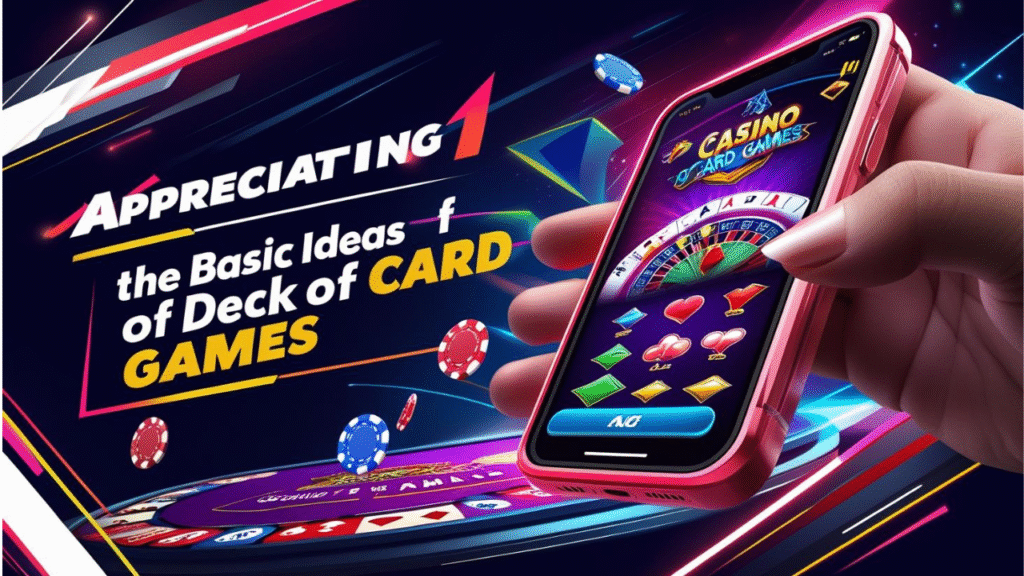
With normally 52 cards split into four suits— hearts, diamonds, clubs, and spades—a deck of cards is really simply a basic tool. Based on this shared deck, hundreds of unique games—each with own rules and goals—exist. The beauty of deck of cards games is in their flexibility: from the solitary struggle of Solitaire to the competitive adrenaline of poker or Bridge, the options are many yet based on a common premise.
One can dispute tactically about card handling.
Any deck of cards game relies on your hand control for effective performance. This include understanding when to hold, when to throw away, and how to project opponent behaviour. Learning card management enhances your ability to make decisions and may convert even an average hand a winning one.
Two rules form only a basis.
Although every deck in a classic deck card games game has rules, real mastery transcends simple memorising of the rules. It calls for knowledge of rapid change of plans, opponent reading, and probability. Knowing weak signals and betting patterns is just as important for games like poker, for instance, than your cards.
3. Probability and Role Odds
Playing card games is special since they combine ability with chance. Knowing the chances—that is, the likelihood of getting a specific easy card games with a deck or your opponent having a given suit—may change your actions greatly. Knowing probability correctly will help you to make measured risks instead of depending just on chance.
4. Advantages in social spheres and cognitive
Apart from entertainment value, playing cards games improves cognitive ability and social interaction. These games test concentration, critical thinking, and memory. Whether you are playing online or in-person, they also support friendship and conversation.
5. Selecting a game fit for your approach
There are so many deck-based games available; you should pick one that fits your degree of ability and taste. While strategists might choose the depth of Bridge or Spades, casual players could favour games like Crazy Eights with quicker pace. Knowing your style can allow you to choose games that will challenge and keep your interested.
Six: Digital Corrections: Their Effects
The emergence of digital channels changed our approach for play cards games. Both online and mobile versions provide lessons coupled with fast matching, accessibility, and simplified learning tools. Though the underlying ideas are the same, various variations have made popular 52 card games to play games more appealing and accessible everywhere.

Simple Actionable Techniques to Improve Your Experience Playing Deck of Cards
If you are ready to become better, think about the following:
Choose among this page your game. Determine the deck of cards game suitable for your aptitude and degree of interest.
Detailed exercises will enable you to grasp the subtleties outside the obvious guidelines.
Regular play helps you to become confident and sharpens your abilities.
Research Opponents: Project activities grounded in behaviour and trends.
Review every game to uncover what worked and what didn’t.
Share ideas and tactics by means of organisations or web forums.
Examining the motives behind Deck of Cards Games Remain Temeless
The incredible blend of luck, talent, and social interaction in deck of cards games fascinates always. Unlike many contemporary games that mostly rely on graphics or technology, these ones need for mental flexibility and social abilities. Their simplicity—just a deck of cards and willing players—allows them to be a democratic and inclusive type of entertainment. The secret is knowing how chance and strategy interact to provide every game a different challenge of your ability.
Typical enquiries and responses, sometimes known as FAQs
Q1.Could memory of cards help me raise my odds in deck of cards games?
Correct. Especially in games like Blackjack or Bridge, card counting and memorising assist you to increase your strategic edge.
Q2. Are games using deck of cards appropriate for any age group?
around. Many games provide sophisticated versions for professionals as well as ones fit for younger gamers and beginners.
Q3. How can playing with a real deck vary from using a digital copy?
While physical play encourages face-to–face social contact and tactile delight, digital versions offer simplicity, fast setup, and worldwide competitiveness.
All taken into account
Deck of cards games provide a classic mix of social interaction, challenge, and strategy. Your performance and satisfaction will be much improved if you grasp the fundamental ideas and welcome the previously mentioned insights. Whether your preferred kind of play is friendly or competitive, deck of card games remain a great instrument for socialising and brain development. Dive in, practise often, and notice how your enjoyment and ability improve.

Just speak the word if you want me to discuss digital rather than conventional play, delve on particular games, or enter more tactical advise.
Also visit-Daman Game

